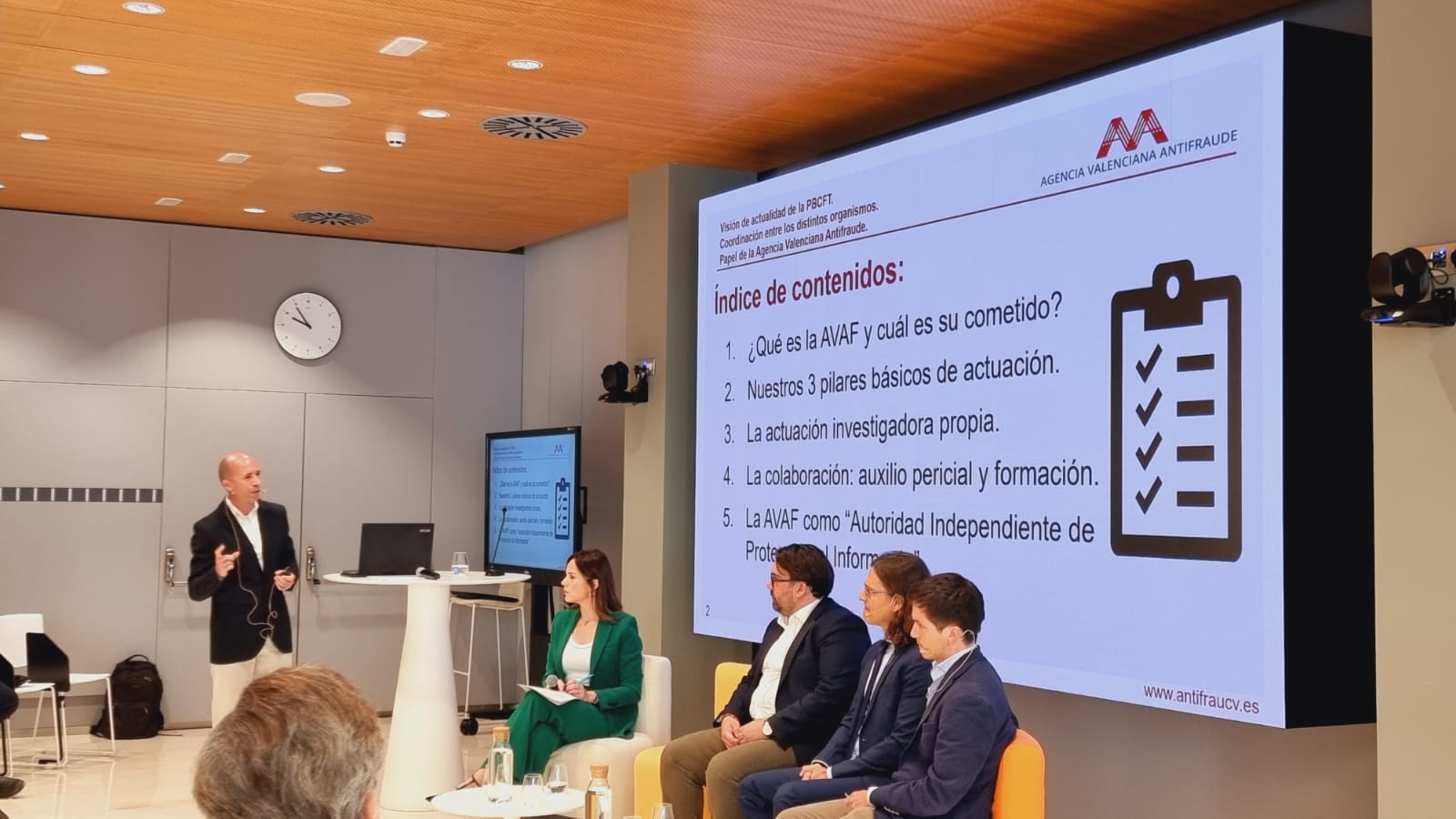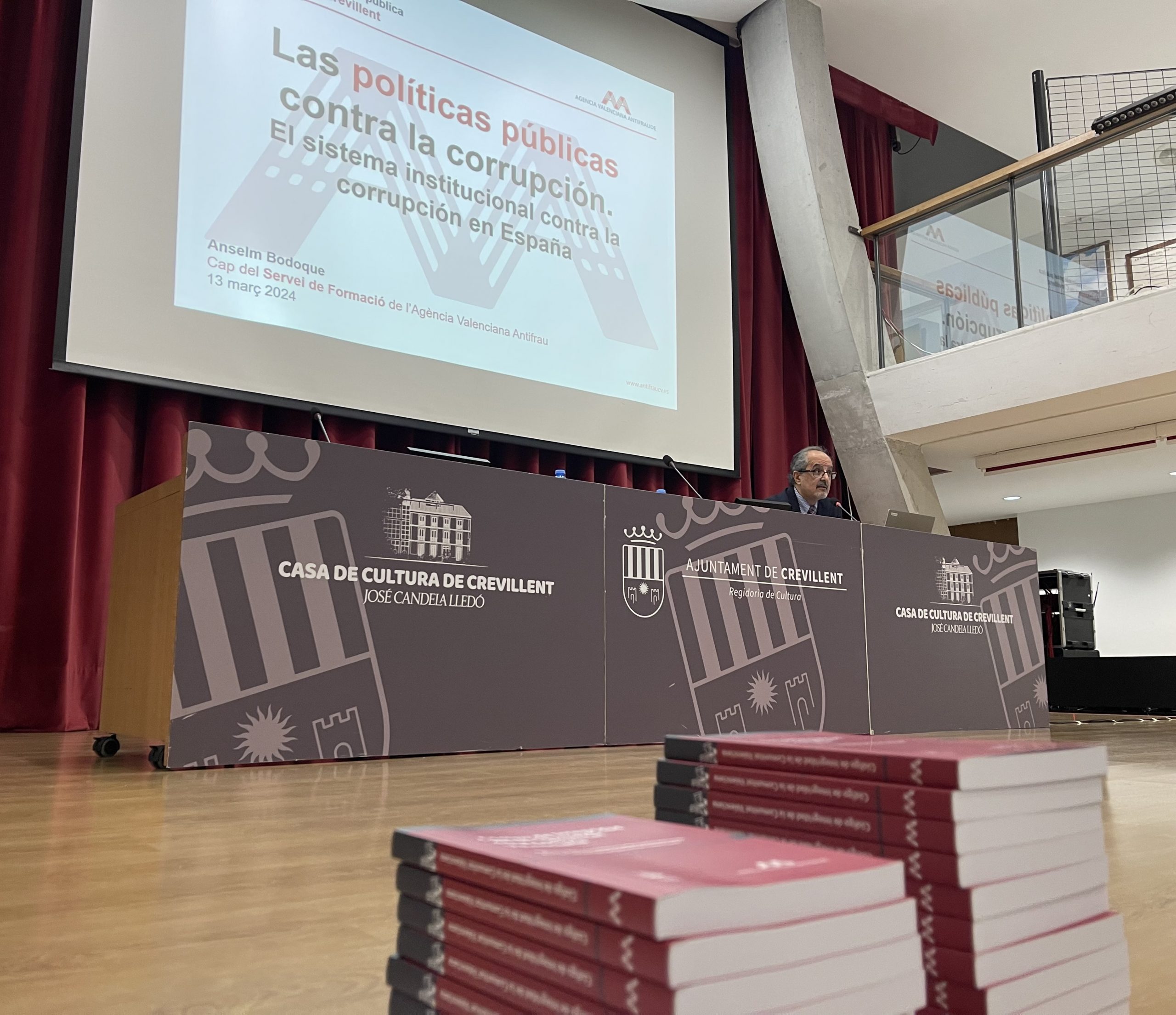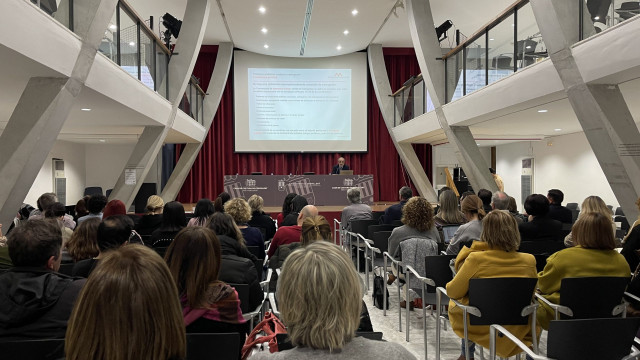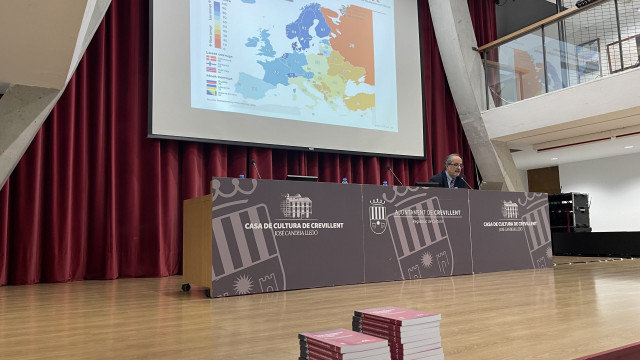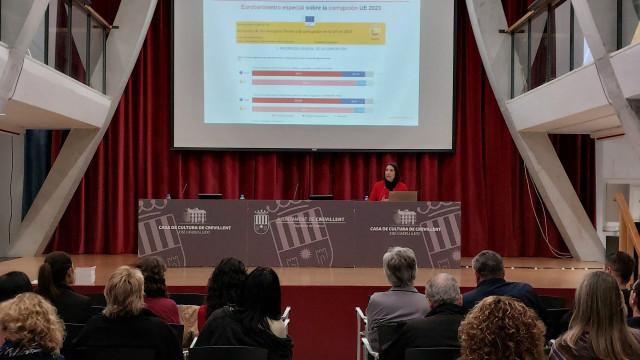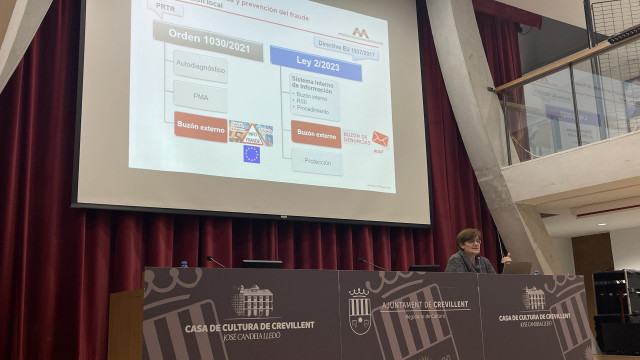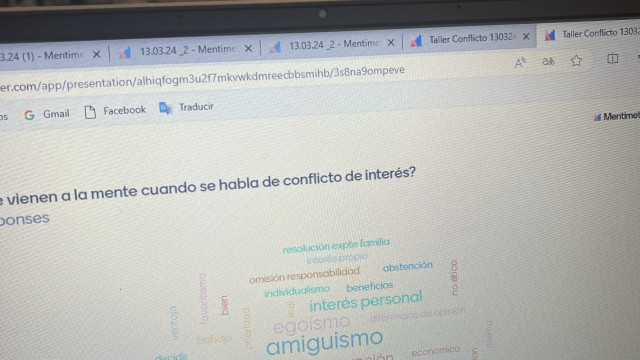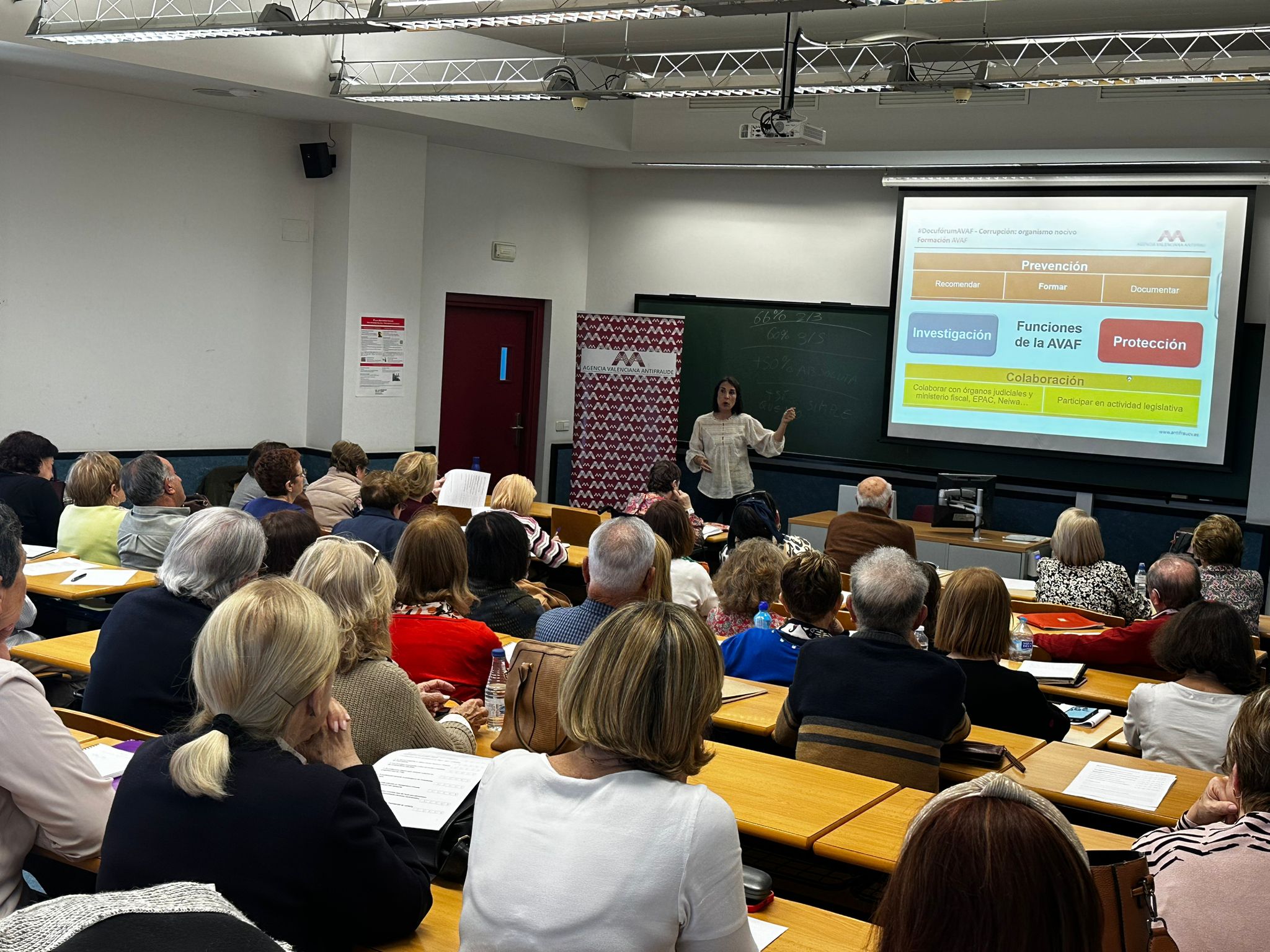#AVAFResearch
Valencia. – April 12, 2024
The Valencian Anti-Fraud Agency participated in the conference on updating the prevention of money laundering and the financing of terrorism organized by the Institute of External Experts in the Prevention of Money Laundering and Financing of Terrorism (INBLAC) together with Banco Sabadell in the city of Valencia.
Miguel Andrés Furió Ferri, head of the Analysis and Research Service of the AVAF, represented the institution in the round table “Current view of the PBCFT. Coordination between different organizations. Role of the Valencian Anti-Fraud Agency”
The role developed by the AVAF from a practical point of view was the vision provided by Furió. The detection and investigation of cases of fraud or corruption in public entities included in their scope of action from the prism of the typology of the crime of money laundering and the financing of terrorism focused the presentation.
The intervention aroused the interest of those attending in relation to the protection aspects of whistleblowers. The interaction of the AVAF with the private sector was described as beneficial by the organization, leaving the doors open to further collaborations in the matter.
Also participating in the table were José Antonio Alcantud Doménech, Deputy Legal Director of the Valencian Institute of Finance IVF, Javier Iranzo Molinero, Tax Inspector of the Generalitat Valenciana and Ignacio Javier Gomis Ruiz, Head of the Asset Investigation and Money Laundering Team at the Unit. Valencia Customs Surveillance Operational Regional. María Cano Hernández. vice president of INBLAC moderated the table.
The participants of the conference were professionals from the public and private sectors interested in updating the prevention of money laundering and the financing of terrorism.


